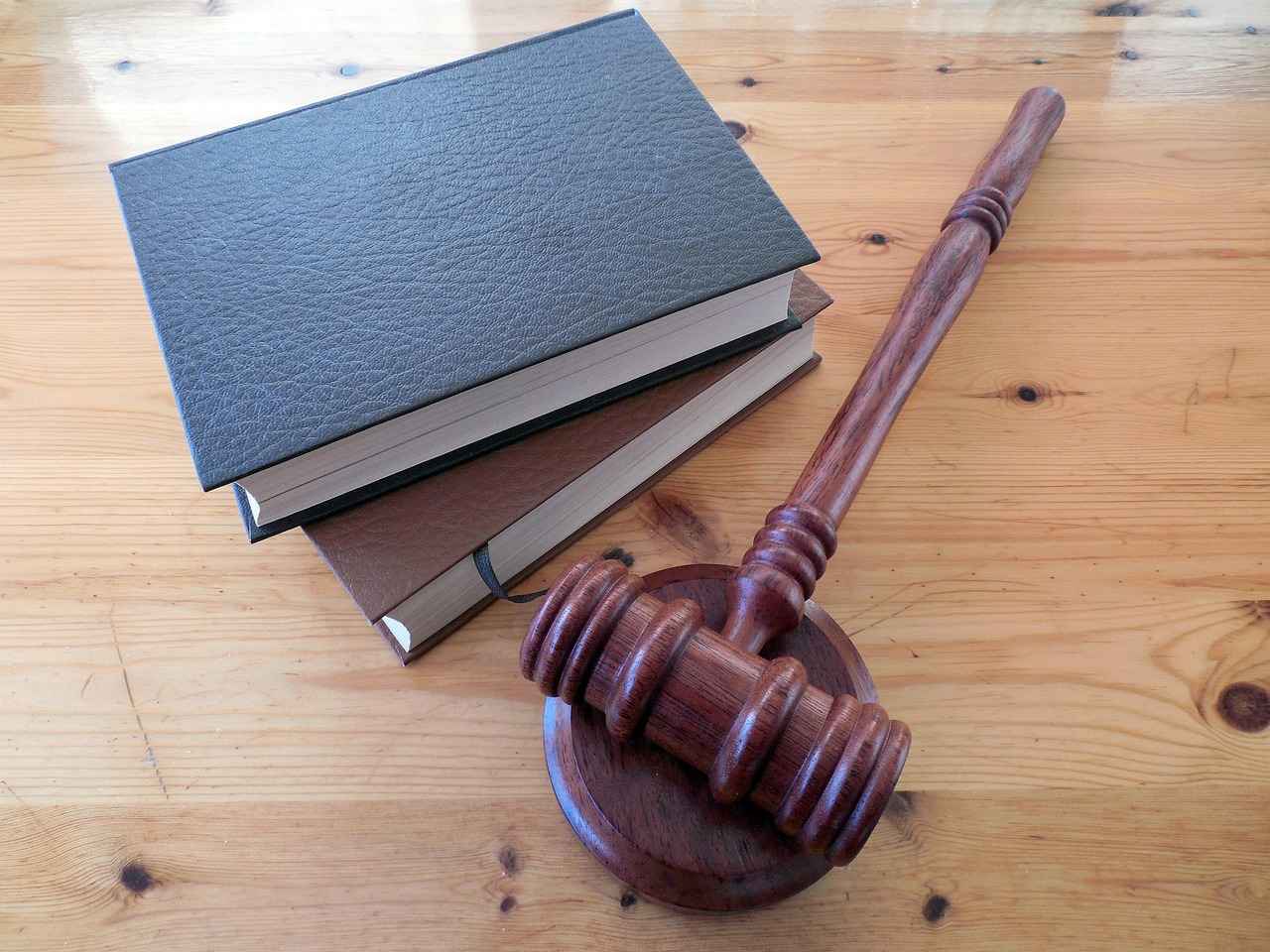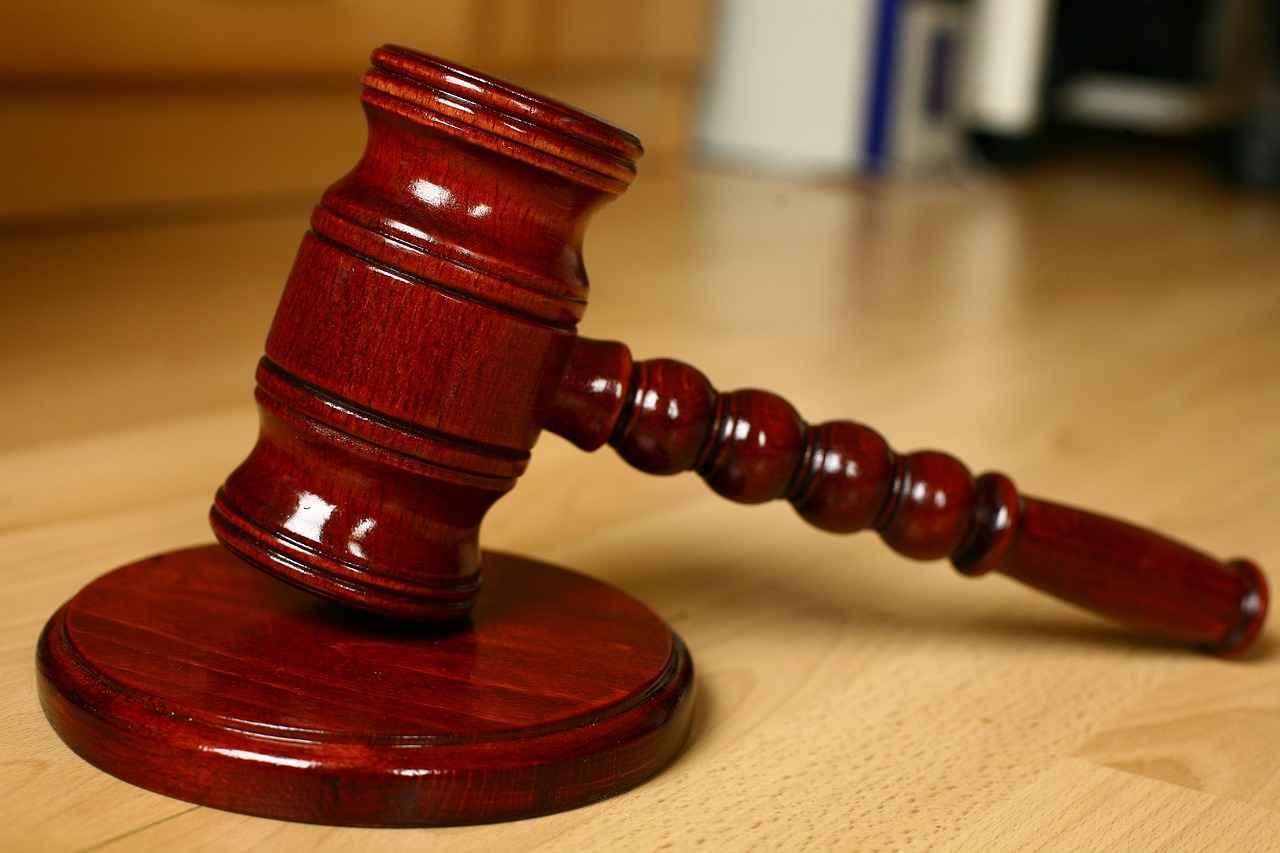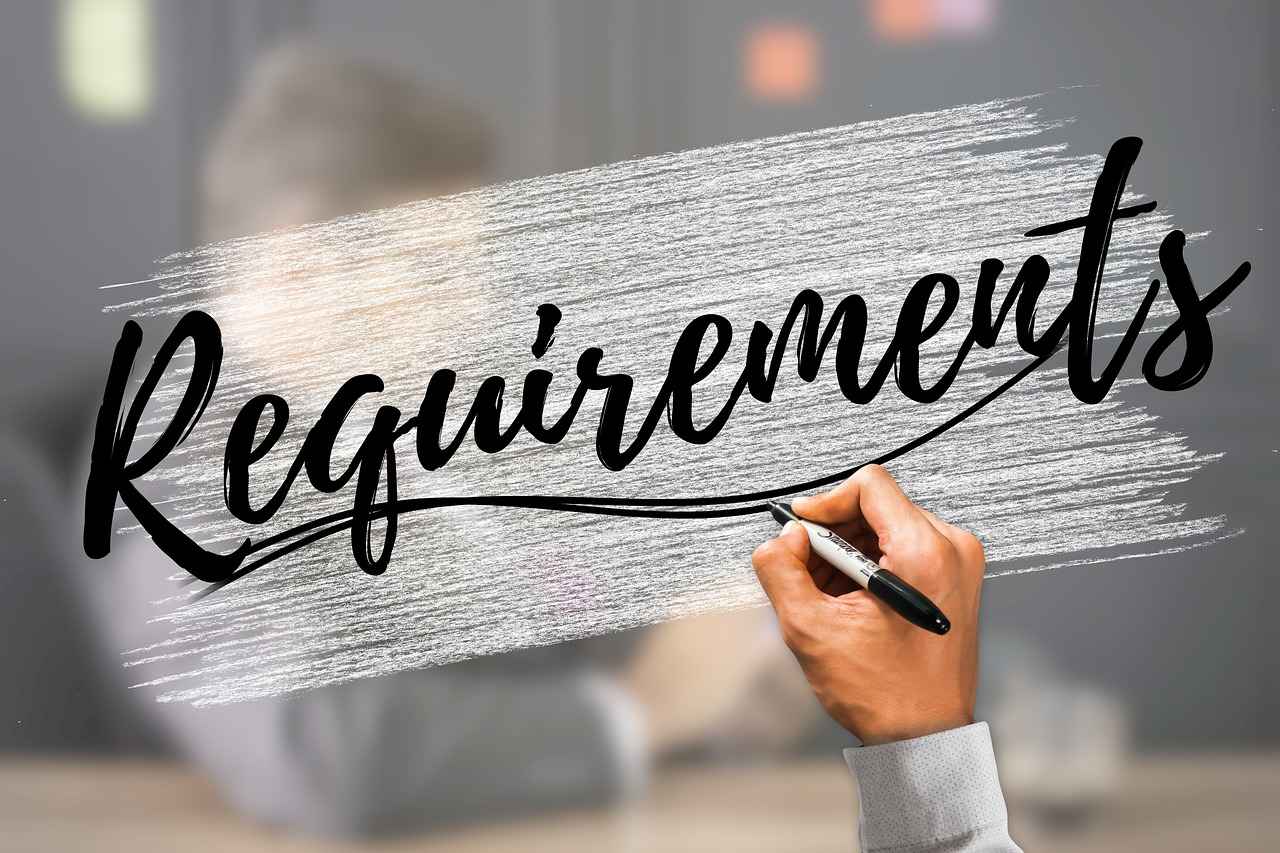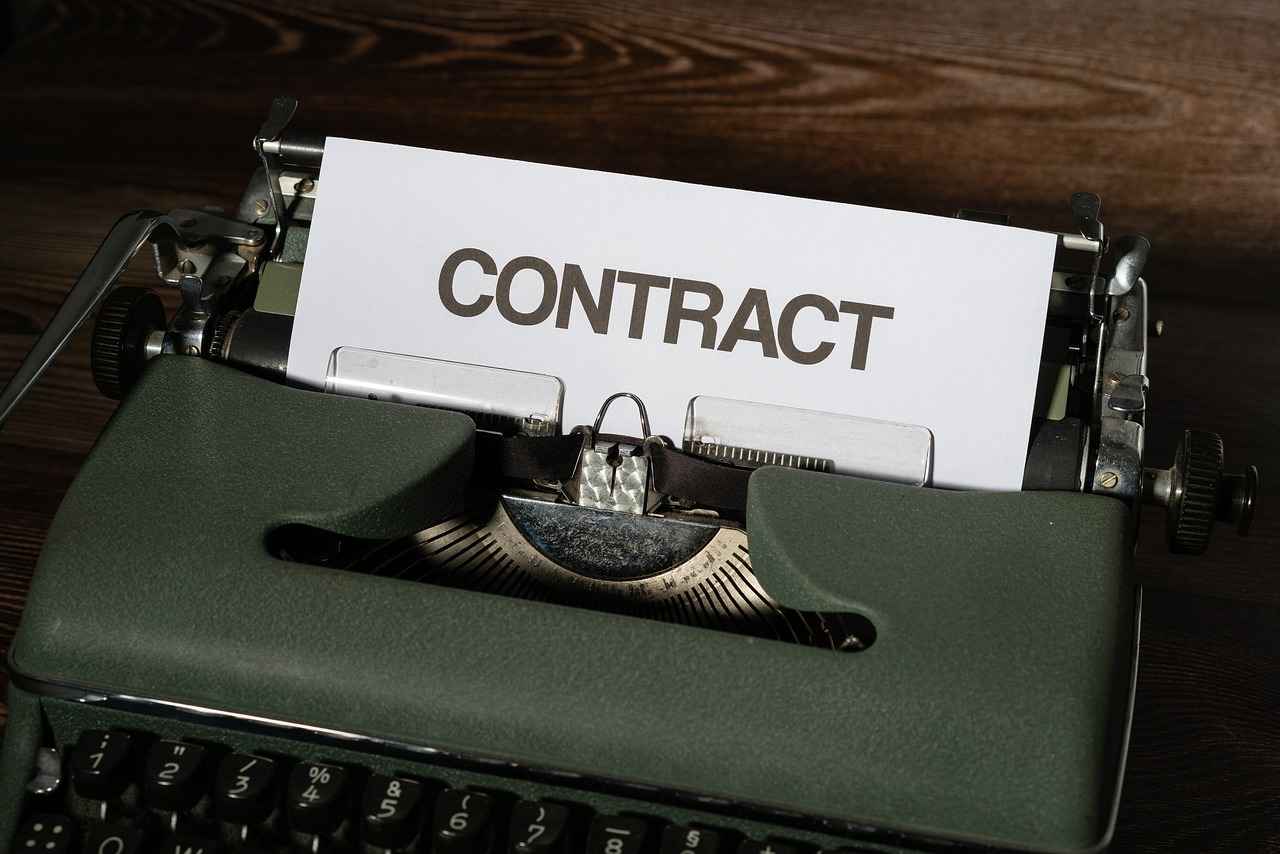This article provides an in-depth look at various legal case types and offers expert guidance on finding qualified lawyers in major metropolitan areas, particularly Los Angeles.
Understanding the different types of legal cases is essential for anyone seeking legal representation. In the United States, common legal cases include:
- Personal Injury: These cases arise from accidents where individuals suffer harm due to someone else’s negligence.
- Medical Malpractice: This involves negligence by healthcare providers, requiring skilled attorneys to navigate complex medical laws.
- Breach of Contract: Occurs when one party fails to perform their contractual obligations, necessitating a lawyer with expertise in contract law.
- Property Disputes: These can involve issues related to ownership, boundaries, or usage rights, often requiring a real estate attorney.
- Landlord-Tenant Disputes: Issues often arise over lease agreements or property conditions, making it crucial to understand your legal rights.
- Defamation: Involves false statements that harm a person’s reputation, requiring knowledge of libel and slander laws.
- Employment Disputes: These can include wrongful termination or discrimination claims, necessitating a lawyer specializing in employment law.
- Product Liability: Cases arise when defective products cause harm, requiring attorneys experienced in consumer protection.
- Wrongful Death: These cases seek compensation for families who have lost loved ones due to negligence.
- Class Action Lawsuits: Allow individuals to sue collectively, requiring attorneys familiar with class action procedures.
- Assault and Battery: Serious criminal charges that necessitate skilled criminal defense attorneys.
- Drug Offenses: From possession to trafficking, finding an attorney with drug case experience is essential.
- Theft and Burglary: These charges carry severe consequences, requiring knowledgeable legal representation.
- Fraud and Embezzlement: Involve financial deception and require lawyers with expertise in white-collar crime.
- Murder and Homicide: The most serious criminal offenses, necessitating experienced defense attorneys.
- DUI/DWI: Driving under the influence can lead to severe penalties, making a knowledgeable attorney crucial.
- Domestic Violence: These cases require sensitive handling and legal expertise.
- Cybercrime: With the rise of technology, legal issues related to online activities are increasingly common.
- Divorce and Family Law: Issues like child custody, support, and adoption require specialized family law attorneys.
- Bankruptcy: Legal representation is vital for navigating the complexities of bankruptcy filings.
- Intellectual Property: Cases involving patents and trademarks need lawyers with specific expertise.
- Civil Rights Violations: Legal action may be necessary when rights are infringed upon.
- Federal Tax Disputes: Complex cases requiring attorneys with knowledge of tax laws.
When searching for a lawyer, consider the following proven methods:
- Research Online Platforms: Websites like Avvo, Martindale-Hubbell, and FindLaw provide ratings, reviews, and detailed profiles of attorneys.
- Check Credentials: Look for bar association membership, specialization certifications, and a proven track record in relevant case types.
- Seek Recommendations: Asking friends, family, or colleagues for referrals can lead to trustworthy legal representation.
- Consult Legal Aid Organizations: They can provide valuable resources and recommendations for qualified attorneys.
While searching for the right lawyer, watch for red flags:
- Vague Promises: Be cautious of lawyers who make unrealistic guarantees about case outcomes.
- Lack of Communication: Good attorneys should be responsive and clear in their communication.
- Pressure Tactics: Avoid lawyers who rush you into making decisions without proper consideration.
Initial consultations are critical for assessing a lawyer’s fit. Prepare a list of questions and discuss your case to gauge their expertise. Understanding legal fees and payment structures is also essential for budgeting purposes.
In conclusion, navigating the legal landscape can be daunting, but with the right guidance, individuals can find qualified attorneys to represent their interests effectively. Empower yourself with knowledge and resources to make informed decisions.

Understanding Personal Injury Cases
Personal injury cases are a significant area of law that deals with accidents resulting in harm to individuals. These incidents can range from car accidents, slips and falls, to workplace injuries and more. The essence of personal injury law is to provide victims with a means to seek compensation for their damages, which may include medical expenses, lost wages, and pain and suffering. Understanding the nuances of these cases is crucial for individuals aiming to navigate the complex legal landscape effectively.
When pursuing a personal injury claim, it is essential to establish negligence on the part of another party. This involves demonstrating that the other party had a duty to act reasonably, breached that duty, and caused harm as a direct result. Victims must gather evidence, such as medical records, witness statements, and police reports, to support their claims. Given the intricacies of these cases, seeking appropriate legal representation is vital.
Finding a qualified personal injury attorney can significantly impact the outcome of your case. Here are some expert tips to help you in your search:
- Look for Specialization: Seek attorneys who specialize in personal injury law. Their expertise in this area can provide you with a strategic advantage.
- Check Experience: An attorney with a proven track record in handling personal injury cases will understand the nuances and challenges that may arise.
- Read Reviews and Testimonials: Online reviews and client testimonials can provide insight into an attorney’s reputation and success rate.
- Consult with Multiple Attorneys: Don’t settle for the first attorney you meet. Schedule consultations with several to compare their approach and comfort level.
- Verify Credentials: Ensure that the attorney is licensed and in good standing with the state bar association. Look for any additional certifications in personal injury law.
Moreover, be cautious of red flags when selecting a lawyer. Avoid attorneys who make unrealistic promises about the outcome of your case or those who pressure you into signing contracts immediately. A reputable attorney will take the time to explain the process and answer all your questions.
In major metropolitan areas like Los Angeles, New York City, and Chicago, many resources are available to assist in your search. Online platforms such as Avvo and FindLaw allow you to search for attorneys by specialty and location, providing ratings and reviews from previous clients. Additionally, local bar associations often have referral services that can connect you with qualified attorneys in your area.
In conclusion, understanding personal injury cases and knowing how to find the right legal representation can empower individuals to seek justice effectively. By following these guidelines and being proactive in your search, you can navigate the complexities of personal injury law with confidence.

Medical Malpractice: What You Need to Know
Medical malpractice is a critical area of law that addresses the negligence of healthcare professionals, which can lead to significant harm or even death for patients. Understanding this complex field is essential for victims seeking justice. Medical malpractice cases typically arise when a healthcare provider fails to deliver the standard of care expected in their profession, resulting in injury to the patient. This can include misdiagnosis, surgical errors, or improper medication administration.
Identifying a qualified attorney in medical malpractice is crucial for victims, as these cases often involve intricate medical details and legal nuances. Here are some steps to help you find the right legal representation:
- Look for Specialization: Seek attorneys who specialize in medical malpractice law. Their expertise will ensure they understand the intricacies of both medical and legal standards.
- Check Credentials: Verify the attorney’s credentials, including their education, bar association membership, and any certifications in medical malpractice or personal injury law.
- Experience Matters: Choose a lawyer with a proven track record in handling medical malpractice cases. Inquire about their past successes and the types of cases they have managed.
- Read Reviews: Online platforms like Avvo and Martindale-Hubbell provide ratings and reviews from previous clients. These can give you insights into the attorney’s reputation and client satisfaction.
- Consultation: Many attorneys offer free initial consultations. Use this opportunity to discuss your case and assess the attorney’s approach and communication style.
In major metropolitan areas like Los Angeles, finding a qualified medical malpractice attorney can be competitive. Consider utilizing local bar association resources or legal aid organizations that can refer you to reputable lawyers in your area.
When meeting with potential attorneys, pay attention to red flags that may indicate untrustworthiness. Be cautious of lawyers who make unrealistic promises, pressure you into making quick decisions, or lack transparency about their fees and processes.
Understanding legal fees is also crucial. Many medical malpractice attorneys work on a contingency fee basis, meaning they only get paid if you win your case. This structure can alleviate financial pressure while pursuing justice.
Lastly, building a strong attorney-client relationship is vital for the success of your case. Open communication and mutual trust can significantly enhance your experience and outcomes. By taking these steps, you can empower yourself in your legal journey and increase your chances of securing the compensation you deserve.

Breach of Contract: Legal Implications
Breach of contract occurs when one party fails to fulfill their obligations as outlined in a contractual agreement. This can lead to significant legal implications, including financial losses and strained relationships. Understanding the intricacies of breach of contract cases is crucial for anyone involved in a contractual dispute. In many instances, these cases arise in various contexts, such as business agreements, real estate transactions, and employment contracts.
When navigating a breach of contract case, it is essential to seek a lawyer with a strong background in contract law. An attorney specializing in this area will have the necessary expertise to analyze the contract in question, assess the nature of the breach, and determine the potential remedies available. This may include monetary damages, specific performance, or contract rescission.
To find a qualified attorney, start by considering the following steps:
- Research Experience: Look for attorneys who have significant experience in handling breach of contract cases. Check their track record for successful outcomes in similar disputes.
- Specialization: Ensure the lawyer specializes in contract law. Many attorneys have specific areas of focus, and hiring someone with contract expertise can significantly impact your case.
- Client Reviews: Read reviews and testimonials from previous clients. This can provide insight into the attorney’s communication style, responsiveness, and overall effectiveness.
- Consultation: Schedule initial consultations with potential lawyers. This meeting will allow you to discuss your case and assess whether the attorney is a good fit for your needs.
- Fees and Payment Structure: Understand the lawyer’s fee structure. Some may work on a contingency basis, while others charge hourly rates. Ensure that you are comfortable with the financial arrangements before proceeding.
In major metropolitan areas like Los Angeles, New York City, and Chicago, there are numerous resources available to help in your search for a qualified attorney. Online platforms such as Avvo and Martindale-Hubbell offer searchable databases of lawyers, complete with ratings and reviews. These resources can help you identify top-rated attorneys in your area.
When evaluating an attorney’s credentials, look for membership in reputable bar associations, relevant certifications, and a history of handling cases similar to yours. Additionally, be wary of red flags, such as vague promises of outcomes, lack of transparency regarding fees, or poor communication during the initial consultation.
In conclusion, navigating a breach of contract case can be complex and challenging. However, with the right legal representation, you can effectively address the situation and pursue the best possible outcome. By conducting thorough research, utilizing online resources, and paying attention to credentials and red flags, you can find a trustworthy lawyer to guide you through the legal process.

Property Disputes: Common Legal Issues
Property disputes are a common source of conflict among property owners, tenants, and neighbors. These disputes can arise from a variety of issues, including boundaries, ownership, or usage rights. Understanding the nature of these conflicts is essential for anyone involved in real estate transactions or property management.
One of the most frequent types of property disputes involves boundary lines. When property lines are unclear or disputed, it can lead to tensions between neighbors. Surveys conducted by licensed professionals can often help clarify these boundaries. However, if disputes persist, legal intervention may be necessary to resolve the matter.
Ownership disputes can also be quite complex. These disputes often arise when multiple parties claim rights to a single property. In such cases, it is crucial to gather all relevant documentation, such as deeds and titles, to establish rightful ownership. A lawyer experienced in real estate law can provide valuable assistance in navigating these intricate legal waters.
Another common issue is related to usage rights. This can include disagreements over easements, which grant one party the right to use a portion of another party’s property for a specific purpose. Such disputes can escalate quickly, especially if one party feels their rights are being infringed upon. Seeking legal counsel can help clarify these rights and facilitate a resolution.
When faced with a property dispute, consulting with a lawyer who specializes in real estate law is essential. These professionals possess the expertise necessary to assess your situation and provide tailored advice. They can also represent you in negotiations or court proceedings, should the need arise.
In major metropolitan areas like Los Angeles, finding the right lawyer can feel overwhelming. Here are some steps to simplify the process:
- Research Online: Utilize legal directories such as Avvo or Martindale-Hubbell to find attorneys specializing in real estate law. These platforms provide ratings, reviews, and detailed profiles.
- Check Credentials: Ensure the lawyer is licensed and in good standing with the state bar. Look for additional certifications in real estate law.
- Read Client Reviews: Pay attention to feedback from previous clients to gauge the lawyer’s effectiveness and communication style.
- Consultations: Schedule initial consultations with a few lawyers to discuss your case. This can help you assess their expertise and approach.
- Ask Questions: Prepare a list of questions to ask during consultations. Inquire about their experience with similar cases, their strategy for resolving disputes, and their fee structure.
It’s important to be aware of potential red flags when hiring a lawyer. Be cautious of attorneys who make unrealistic promises or who pressure you to sign agreements quickly. A trustworthy lawyer will take the time to explain your options and allow you to make informed decisions.
In conclusion, property disputes can be complex and emotionally charged. However, with the right legal guidance, individuals can navigate these challenges effectively. By understanding the common issues that arise in property disputes and knowing how to find a qualified attorney, you can protect your rights and interests in any real estate matter.

Landlord-Tenant Disputes: Rights and Responsibilities
Landlord-tenant disputes are a common occurrence in the realm of real estate law, often stemming from misunderstandings or disagreements over lease agreements, property conditions, and tenant rights. These disputes can arise in various forms, such as issues related to rent payments, security deposits, maintenance responsibilities, and eviction processes. Understanding the legal rights and responsibilities of both landlords and tenants is essential for resolving conflicts effectively.
When facing a landlord-tenant dispute, it is crucial to first review the lease agreement. This document outlines the terms and conditions agreed upon by both parties. It typically includes information about rent due dates, maintenance responsibilities, and procedures for handling disputes. Familiarity with these terms can provide a solid foundation for any legal argument.
In many cases, state and local laws govern landlord-tenant relationships, providing additional rights and protections. For instance, tenants have the right to a habitable living environment, which means that landlords must ensure that the property meets basic health and safety standards. If a landlord fails to make necessary repairs, tenants may have grounds to withhold rent or take legal action. Conversely, landlords have the right to receive rent on time and to evict tenants for breaches of the lease agreement.
Finding the right attorney to represent you in a landlord-tenant dispute can significantly influence the case’s outcome. Here are some practical steps to consider:
- Research Specialization: Look for attorneys who specialize in real estate law or landlord-tenant disputes. Their expertise can make a considerable difference in navigating the complexities of your case.
- Check Credentials: Verify the attorney’s qualifications, including their bar association membership, any relevant certifications, and their track record in handling similar cases.
- Read Reviews: Look for client testimonials and reviews online. Websites like Avvo and Martindale-Hubbell can provide insights into an attorney’s reputation and success rate.
- Consultation: Schedule an initial consultation to discuss your case. This meeting allows you to assess the attorney’s communication style, approach, and understanding of your specific situation.
During the consultation, be prepared to ask questions that will help you gauge the attorney’s experience and strategies. Inquire about their previous cases, their approach to negotiation and litigation, and how they plan to handle your specific dispute. Additionally, discuss legal fees and payment structures upfront to avoid any surprises later on.
It is also important to be aware of red flags when hiring an attorney. Signs of potential issues include:
- Vague promises or guarantees of outcomes.
- Lack of clear communication or difficulty in reaching them.
- Pressure tactics to sign contracts or make quick decisions.
In conclusion, landlord-tenant disputes can be challenging, but understanding your rights and responsibilities is the first step toward resolution. By conducting thorough research and finding a qualified attorney, you can navigate these disputes more effectively. Remember, the right legal representation can help protect your interests and ensure a fair outcome.

Defamation: Libel vs. Slander
Defamation is a legal term that refers to the act of making false statements about an individual or entity that can harm their reputation. Understanding the distinction between libel and slander is essential for anyone considering legal action in this area. Both forms of defamation can have serious consequences, but they differ in their mediums and implications.
Libel refers to defamation that occurs through written or published statements. This can include anything from articles and books to online posts and social media content. Because libelous statements are documented, they can be easier to prove in court, as the evidence is tangible and permanent. Victims of libel can suffer significant reputational damage, leading to lost job opportunities, social ostracization, and emotional distress.
On the other hand, slander involves verbal statements that harm a person’s reputation. This could occur in conversations, speeches, or broadcasts. Slander is often considered more challenging to prove than libel because it lacks a physical record. Victims may need to demonstrate that the statements made were not only false but also caused actual harm to their reputation or livelihood.
When pursuing a defamation case, it is crucial to consult with a lawyer who specializes in this area of law. Here are some steps to help you find the right legal counsel:
- Research Attorneys: Look for lawyers who have a proven track record in handling defamation cases. Websites like Avvo and Martindale-Hubbell offer ratings and reviews that can help you gauge an attorney’s expertise.
- Check Credentials: Verify the attorney’s educational background, bar association membership, and any certifications related to defamation law. A lawyer with specific experience in media law or reputation management may be particularly beneficial.
- Ask for Referrals: Reach out to friends, family, or colleagues who may have dealt with similar issues. Personal recommendations can provide insights into an attorney’s approach and effectiveness.
- Initial Consultation: Many lawyers offer free consultations. Use this opportunity to discuss your case, ask questions, and assess the attorney’s understanding of the nuances between libel and slander.
- Evaluate Communication: Effective communication is critical in legal matters. Choose an attorney who takes the time to explain legal concepts clearly and responds promptly to your inquiries.
Be cautious of red flags when hiring a lawyer:
- Vague Promises: Be wary of attorneys who guarantee specific outcomes or promise to win your case without understanding the details.
- Lack of Transparency: If an attorney is unwilling to discuss fees or their experience openly, consider this a warning sign.
- Pressure Tactics: Avoid lawyers who push you to make quick decisions or sign contracts without giving you adequate time to review.
In conclusion, navigating a defamation case requires a clear understanding of the differences between libel and slander, as well as the right legal representation. By following the steps outlined above, individuals can empower themselves to find qualified attorneys who will advocate for their rights effectively. Remember, a strong attorney-client relationship is built on trust, communication, and a shared goal of achieving justice.

Employment Disputes: Navigating Workplace Issues
Employment disputes can arise in various forms, often leading to significant stress and financial strain for employees. These disputes may include wrongful termination, where an employee is dismissed for illegal reasons, and discrimination, which can occur based on race, gender, age, or disability. Understanding these issues is essential for anyone navigating the complexities of workplace grievances.
To effectively address employment disputes, finding a lawyer who specializes in employment law is crucial. Such attorneys possess the necessary expertise to handle cases involving workplace rights and can guide individuals through the legal process. Here are some key considerations when searching for the right legal representation:
- Specialization: Look for lawyers who focus specifically on employment law. This specialization ensures they are well-versed in the latest regulations and case precedents.
- Experience: An attorney with a proven track record in handling employment disputes can provide valuable insights and strategies tailored to your case.
- Reputation: Research potential lawyers through online reviews, testimonials, and professional ratings. A lawyer with a strong reputation in the community is often a reliable choice.
In major metropolitan areas like Los Angeles, New York City, and Chicago, numerous resources are available to help individuals find qualified employment attorneys. Online platforms such as Avvo and Martindale-Hubbell offer directories of lawyers along with ratings and client reviews. These platforms can assist in narrowing down your options based on specific needs.
When evaluating potential attorneys, consider the following credentials:
- Bar Association Membership: Ensure the lawyer is in good standing with their state bar association.
- Certifications: Look for any special certifications in employment law, which can indicate a higher level of expertise.
- Track Record: Request information about past case outcomes to gauge their effectiveness in handling similar disputes.
It is also important to be aware of red flags when hiring a lawyer. Signs of an untrustworthy attorney may include:
- Vague Promises: Be cautious of lawyers who guarantee specific outcomes, as legal cases can be unpredictable.
- Poor Communication: If an attorney is difficult to reach or does not respond promptly to inquiries, it may be a sign of their overall commitment to your case.
- Pressure Tactics: Avoid lawyers who rush you into making decisions or signing contracts without giving you adequate time to consider your options.
During the initial consultation, which is often free, prepare a list of questions to ask the attorney. Discuss your specific situation, and take note of how they approach your case. This meeting is an opportunity to assess their expertise and compatibility with your needs.
Understanding the legal fees associated with employment disputes is also crucial. Many employment lawyers work on a contingency fee basis, meaning they only get paid if you win your case. This arrangement can alleviate the financial burden during a challenging time. However, always clarify the fee structure and any additional costs that may arise during the legal process.
Building a strong attorney-client relationship is essential for a successful outcome. Open communication, trust, and a shared understanding of your goals can significantly impact the effectiveness of your legal representation.
In conclusion, navigating employment disputes requires careful consideration and the right legal support. By focusing on specialization, experience, and reputation, individuals can find qualified attorneys who will advocate for their rights in the workplace. Empower yourself with knowledge and take proactive steps to secure the legal assistance you need.

Product Liability: Holding Manufacturers Accountable
Product liability cases are critical in ensuring that consumers are protected from harm caused by defective products. These cases arise when a product fails to perform as expected, leading to injury or damage. Such incidents can involve anything from faulty electronics to unsafe pharmaceuticals, and they highlight the importance of holding manufacturers accountable for their products.
When seeking legal representation in product liability cases, it is essential to find attorneys who are not only experienced in consumer protection laws but also have a deep understanding of product safety regulations. Here are some key considerations to keep in mind when searching for the right lawyer:
- Specialization: Look for attorneys who specialize in product liability cases. Their expertise will be invaluable in navigating the complexities of the law.
- Experience: Choose lawyers with a proven track record of handling similar cases. Experienced attorneys are more likely to understand the nuances involved and can offer better strategies for your situation.
- Reputation: Research the lawyer’s reputation in the legal community. Online reviews, testimonials, and peer ratings can provide insights into their professionalism and effectiveness.
- Consultations: Take advantage of initial consultations to discuss your case. This meeting is an opportunity to evaluate the attorney’s communication style and approach to your specific situation.
In major metropolitan areas like Los Angeles, New York City, and Chicago, finding qualified attorneys can be facilitated through various online platforms. Websites such as Avvo and Martindale-Hubbell offer comprehensive directories of lawyers, complete with ratings and reviews. These platforms can help you narrow down your options based on location and specific legal needs.
When evaluating potential lawyers, pay attention to their credentials. Ensure that they are members of relevant bar associations and have any necessary certifications in product liability law. A strong educational background and ongoing professional development in the field can also be indicators of a competent attorney.
While searching for legal representation, be aware of red flags that may indicate a less-than-reputable lawyer. Signs to watch for include:
- Vague Promises: Be cautious of lawyers who make unrealistic guarantees about the outcome of your case.
- Lack of Communication: A good attorney should be responsive to your inquiries and keep you updated on your case’s progress.
- Pressure Tactics: Avoid lawyers who pressure you into making quick decisions without allowing you to consider your options.
In conclusion, navigating product liability cases requires a strategic approach to finding the right legal representation. By focusing on specialization, experience, and reputation, you can empower yourself to hold manufacturers accountable for their products effectively. Utilize online resources and be vigilant in your search to ensure that you secure the best possible attorney for your case.

Wrongful Death: Seeking Justice for Loss
Wrongful death cases represent one of the most devastating legal circumstances, as they involve the tragic loss of a loved one due to another party’s negligence or wrongful actions. Families grappling with such profound grief often seek justice and compensation for their loss, which can include medical expenses, funeral costs, and loss of income or companionship. However, the process of navigating a wrongful death claim can be complex and emotionally taxing.
When pursuing a wrongful death case, it is crucial to select a lawyer who specializes in this sensitive area of law. The right attorney not only understands the legal intricacies but also possesses the compassion required to handle such delicate matters. Here are some essential considerations when searching for a wrongful death attorney:
- Experience: Look for an attorney who has a proven track record in handling wrongful death cases. Their experience can significantly affect the outcome of your case.
- Specialization: Ensure that the lawyer specializes in personal injury law, particularly wrongful death claims. This specialization indicates a deeper understanding of the nuances involved.
- Reputation: Research the attorney’s reputation through online reviews, testimonials, and peer ratings. A well-regarded attorney is more likely to provide the quality representation you need.
In major metropolitan areas like Los Angeles, New York City, and Chicago, there are several resources available to assist in your search:
- Legal Directories: Websites like Avvo and FindLaw allow you to search for attorneys by practice area and location, providing ratings and reviews that can help in your decision-making process.
- Bar Associations: State and local bar associations offer referral services that can connect you with qualified attorneys specializing in wrongful death cases.
- Consultations: Many attorneys offer free initial consultations. Take advantage of this opportunity to discuss your case and assess whether the attorney is a good fit for your needs.
While seeking legal representation, be mindful of certain red flags that may indicate an untrustworthy attorney:
- Vague Promises: Be wary of lawyers who guarantee specific outcomes. Legal cases, especially wrongful death claims, can be unpredictable.
- Lack of Communication: An attorney who is difficult to reach or does not respond promptly to your inquiries may not prioritize your case.
- Pressure Tactics: Avoid attorneys who pressure you into signing contracts or making quick decisions without fully understanding your options.
Once you’ve selected a qualified attorney, building a strong attorney-client relationship is vital for the success of your case. Open communication is key; ensure that you feel comfortable discussing sensitive details about your loved one and the circumstances surrounding their death. Your attorney should be a source of support, guiding you through the legal process with empathy and expertise.
In conclusion, wrongful death cases are not only about seeking compensation but also about finding closure and justice for a life cut short. By taking the time to find the right lawyer, you can navigate the legal complexities with confidence and ensure that your family’s rights are protected during this challenging time.

Class Action Lawsuits: Collective Legal Action
Class action lawsuits represent a powerful mechanism for individuals to unite and seek justice collectively. These legal actions are particularly beneficial when numerous individuals have suffered similar harm due to the actions of a single entity, such as a corporation or government agency. By participating in a class action, individuals can pool their resources, share legal costs, and enhance their chances of achieving a favorable outcome.
Finding a lawyer who specializes in class action lawsuits is crucial for success. Here are several key considerations to keep in mind:
- Experience in Class Actions: Look for attorneys who have a proven track record in handling class action cases. Their experience will be invaluable in navigating the complexities of such lawsuits.
- Reputation: Research the lawyer’s reputation within the legal community. Online reviews, testimonials, and case results can provide insight into their effectiveness and client satisfaction.
- Resources: Class action lawsuits often require significant resources for research, expert witnesses, and litigation costs. Ensure the attorney or law firm has the necessary resources to support your case adequately.
- Clear Communication: A good attorney will communicate clearly and regularly about the status of the case. They should be willing to answer your questions and keep you informed throughout the legal process.
To find qualified attorneys in major metropolitan areas such as New York City, Los Angeles, and Chicago, consider the following methods:
- Legal Directories: Utilize online legal directories such as Avvo or Martindale-Hubbell. These platforms provide ratings, reviews, and detailed profiles of attorneys, allowing you to compare potential candidates easily.
- Bar Association Referrals: Contact your local or state bar association for referrals to attorneys specializing in class action lawsuits. They can provide a list of qualified lawyers in your area.
- Consultations: Schedule initial consultations with potential attorneys to discuss your case. This meeting will help you assess their expertise, approach, and compatibility with your needs.
When evaluating potential lawyers, it is essential to check their credentials. Look for:
- Bar Association Membership: Ensure the attorney is a member of the state bar and is in good standing.
- Specialization Certifications: Some attorneys may have certifications in specific areas of law, which can indicate their expertise in class actions.
- Track Record: Inquire about their past class action cases, including outcomes and settlements. A strong history of successful resolutions can be a positive indicator.
While searching for a qualified attorney, be aware of potential red flags:
- Vague Promises: Be cautious of lawyers who make unrealistic promises about the outcome of your case. Legal outcomes can be unpredictable, and no attorney can guarantee success.
- Lack of Communication: If an attorney is unresponsive or difficult to reach during the initial stages, it may indicate future communication issues.
- Pressure Tactics: Avoid attorneys who pressure you into signing contracts or making decisions quickly. A reputable lawyer will provide you with the time and information needed to make informed choices.
In conclusion, class action lawsuits can be a powerful tool for individuals seeking justice against larger entities. By understanding how to find a qualified attorney experienced in class actions, you can significantly enhance your chances of success. Take the time to research, ask questions, and choose a lawyer who aligns with your needs and values. With the right legal representation, you can navigate the complexities of class action lawsuits and work towards achieving a favorable outcome.

Assault and Battery: Legal Definitions and Consequences
Assault and battery are serious criminal charges that can have lasting repercussions on an individual’s life. Understanding the legal definitions and consequences of these charges is crucial for anyone facing such allegations. Assault typically refers to the act of threatening or attempting to cause physical harm to another person, while battery involves the actual physical contact or harm inflicted upon another individual. Both offenses can lead to severe penalties, including fines, imprisonment, and a permanent criminal record.
Individuals facing assault and battery charges should seek the assistance of a skilled criminal defense attorney who can navigate the complexities of the legal system. Here are some essential considerations when searching for legal representation:
- Experience in Criminal Defense: Look for attorneys who specialize in criminal law, particularly those with a track record of handling assault and battery cases. Their experience can significantly impact the outcome of your case.
- Reputation: Research potential lawyers’ reputations through online reviews, testimonials, and their standing with local bar associations. A well-respected attorney is likely to be more effective in court.
- Consultation: Schedule consultations with multiple attorneys to discuss your case. This initial meeting allows you to assess their communication style, approach to your case, and overall compatibility.
- Fees and Payment Structures: Understand the attorney’s fee structure upfront. Some may charge hourly rates, while others may work on a contingency basis. Be sure to clarify all costs involved to avoid surprises later.
- Red Flags: Be wary of attorneys who make unrealistic promises, pressure you into signing agreements, or lack transparency about their experience and fees. Trust your instincts; if something feels off, it’s best to seek representation elsewhere.
In major metropolitan areas like Los Angeles, New York City, and Chicago, you can utilize various online platforms to find qualified attorneys. Websites such as Avvo, Martindale-Hubbell, and FindLaw provide ratings, reviews, and detailed profiles of attorneys, helping you make informed decisions.
Assault and battery charges can vary in severity, with factors such as the intent behind the act, the level of harm inflicted, and the circumstances surrounding the incident influencing potential penalties. Understanding these nuances can help your attorney build a strong defense strategy tailored to your specific situation.
In conclusion, if you are facing assault and battery charges, it is imperative to act swiftly in securing a competent legal defense. The right attorney can make a significant difference in the outcome of your case, guiding you through the legal process and advocating for your rights. Remember, your future is at stake, and having a knowledgeable and experienced lawyer by your side can help you navigate this challenging time.

Drug Offenses: Navigating Complex Laws
Drug offenses encompass a wide range of legal issues, from simple possession of controlled substances to serious charges like trafficking and distribution. With the complexities of drug laws varying significantly by state and jurisdiction, individuals facing such charges must seek legal representation that is both knowledgeable and experienced in this specialized field.
When searching for an attorney to handle drug-related cases, it is crucial to consider several factors:
- Experience in Drug Law: Look for attorneys who specialize in drug offenses. Their familiarity with local laws and court procedures can significantly influence the outcome of your case.
- Track Record: Research the attorney’s history with drug cases. A successful track record can indicate their effectiveness in defending clients against similar charges.
- Reputation: Client reviews and testimonials can provide insight into the attorney’s professionalism, communication skills, and overall effectiveness.
In major cities like Los Angeles and New York, where drug-related offenses are prevalent, it is essential to find an attorney who understands the local legal landscape. Here are some strategies to effectively find qualified representation:
- Online Legal Directories: Websites such as Avvo and Martindale-Hubbell offer searchable databases of attorneys categorized by their practice areas. These platforms provide ratings, reviews, and detailed profiles.
- Referrals: Ask friends, family, or colleagues for recommendations. Personal referrals can be invaluable in finding trustworthy legal representation.
- Consultations: Many attorneys offer free initial consultations. Use this opportunity to discuss your case and assess the attorney’s approach and expertise.
While evaluating potential attorneys, pay attention to the following red flags that may indicate an untrustworthy lawyer:
- Vague Promises: Be wary of attorneys who guarantee specific outcomes. The legal process is unpredictable, and no lawyer can assure a particular result.
- Lack of Communication: If an attorney is difficult to reach or fails to respond promptly to inquiries, it may indicate a lack of dedication to your case.
- Pressure Tactics: Avoid lawyers who pressure you into making quick decisions. A good attorney will provide you with the necessary information to make informed choices.
In addition to these considerations, understanding the legal fees associated with hiring a drug offense attorney is crucial. Many attorneys charge on a contingency basis, meaning they only get paid if you win your case, while others may charge hourly rates. Make sure to discuss and clarify the fee structure during your initial consultation to avoid unexpected costs later on.
Building a strong attorney-client relationship is essential for navigating the complexities of drug offenses. Open communication and mutual trust will empower you and your attorney to work together effectively, increasing the chances of a favorable outcome.
In conclusion, navigating the legal landscape of drug offenses can be daunting, but with the right guidance, individuals can find qualified attorneys to represent their interests effectively. Whether facing charges in bustling cities like Chicago or Houston, understanding how to find the right legal representation is crucial. By utilizing online platforms, seeking referrals, and being vigilant about red flags, you can empower yourself to make informed decisions in your legal journey.

Theft and Burglary: Understanding Your Rights
Theft and burglary are serious criminal offenses that can lead to significant legal repercussions, including hefty fines and imprisonment. Understanding your rights and the legal landscape surrounding these charges is crucial for anyone facing such allegations. Individuals accused of theft or burglary should prioritize finding competent legal representation to navigate the complexities of the criminal justice system.
When charged with theft, which generally involves unlawfully taking someone else’s property with the intent to permanently deprive them of it, the consequences can be severe. On the other hand, burglary typically refers to entering a building unlawfully with the intent to commit a crime inside, often associated with theft. Both offenses can result in felony charges, depending on the circumstances, such as prior convictions or the value of the property involved.
To effectively defend against these charges, it is essential to seek legal representation from attorneys who specialize in criminal defense strategies. Here are some steps to help you find the right lawyer:
- Research Specialization: Look for attorneys who have a proven track record in handling theft and burglary cases. Specialized knowledge in criminal law can significantly impact the outcome of your case.
- Check Credentials: Verify the attorney’s qualifications, including their education, bar association membership, and any certifications related to criminal defense.
- Read Reviews: Utilize online platforms such as Avvo and Martindale-Hubbell to read client reviews and ratings. These insights can provide valuable information about an attorney’s reputation and effectiveness.
- Consultation: Schedule consultations with potential attorneys. This meeting allows you to discuss your case, assess their communication style, and determine if you feel comfortable working with them.
During the consultation, be prepared to discuss the specifics of your case, including the circumstances surrounding the charges and any evidence that may exist. An experienced attorney will ask pertinent questions and provide insights on possible defense strategies.
Additionally, here are some red flags to watch out for when hiring a lawyer:
- Vague Promises: Be cautious of attorneys who make unrealistic promises regarding the outcome of your case. Legal proceedings are inherently unpredictable.
- Lack of Communication: If an attorney is difficult to reach or does not respond promptly to your inquiries, it may indicate a lack of commitment to your case.
- Pressure Tactics: Avoid lawyers who pressure you into making quick decisions or signing agreements without fully understanding the implications.
Understanding the legal fees associated with hiring a criminal defense attorney is also essential. Many lawyers charge on an hourly basis, while others may work on a flat fee or contingency basis. Make sure to clarify the fee structure during your initial consultation to avoid any surprises later on.
In metropolitan areas like Los Angeles, New York City, and Chicago, the demand for skilled criminal defense attorneys is high. Therefore, it is crucial to perform thorough research and take your time in selecting the right legal representative. A qualified attorney will not only defend your rights but also provide invaluable support throughout the legal process.
In conclusion, facing theft or burglary charges can be overwhelming, but with the right legal representation, individuals can navigate the complexities of the criminal justice system more effectively. Take the time to research and connect with qualified attorneys who can provide the expertise necessary to protect your rights and pursue the best possible outcome for your case.

Fraud and Embezzlement: Legal Repercussions
Fraud and embezzlement are serious offenses that can have devastating consequences for individuals and organizations alike. These cases typically involve financial deception, where one party unlawfully takes or misappropriates funds or property entrusted to them. Understanding the complexities of these crimes is essential for anyone facing such charges or involved in related legal matters.
When looking for a lawyer specializing in white-collar crime, it is crucial to consider their experience and expertise in handling fraud and embezzlement cases. Here are some practical steps to help you find the right legal representation:
- Research Online: Utilize online legal directories such as Avvo or Martindale-Hubbell. These platforms provide ratings, reviews, and detailed profiles of attorneys, allowing you to assess their qualifications and areas of specialization.
- Check Credentials: Look for attorneys who are members of recognized legal associations, such as the American Bar Association or state-specific legal organizations. Membership often indicates a commitment to staying updated on legal trends and best practices.
- Experience Matters: Seek out lawyers with a proven track record in handling fraud and embezzlement cases specifically. Ask about their past cases, outcomes, and familiarity with the relevant laws in your state.
- Consultation: Schedule initial consultations with potential lawyers to discuss your case. This meeting is an opportunity to evaluate their understanding of your situation, communication style, and overall approach to legal representation.
- Client Reviews: Pay attention to client testimonials and reviews. Feedback from previous clients can provide valuable insights into the attorney’s effectiveness and professionalism.
- Fee Structure: Understand the attorney’s fee structure upfront. Some lawyers may work on a contingency basis, while others may charge hourly rates. Ensure that you are comfortable with the financial arrangement before proceeding.
While searching for legal representation, be aware of potential red flags that may indicate an untrustworthy attorney:
- Lack of Transparency: If a lawyer is vague about their fees, case strategy, or previous results, consider it a warning sign.
- Pressure Tactics: Be cautious of attorneys who push you to make quick decisions or sign agreements without adequate time for consideration.
- Poor Communication: An attorney who is difficult to reach or slow to respond to inquiries may not prioritize your case.
In summary, navigating fraud and embezzlement cases requires a skilled legal representative who understands the intricacies of white-collar crime. By following these guidelines and conducting thorough research, you can find a qualified attorney who will advocate for your rights and work diligently to achieve a favorable outcome. Remember, the stakes are high, and having the right legal support can make all the difference in the resolution of your case.

Murder and Homicide: The Seriousness of Charges
Murder and homicide are among the most serious criminal offenses in the United States, carrying significant legal consequences and societal implications. The gravity of these charges necessitates that individuals accused of such crimes seek experienced attorneys specializing in serious criminal defense. In this article, we will explore the complexities surrounding murder and homicide charges, as well as the importance of finding the right legal representation.
When faced with accusations of murder or homicide, it is crucial to understand the distinctions between the two. Murder typically involves the intentional taking of another person’s life, whereas homicide can encompass a broader range of unlawful killings, including manslaughter. The legal definitions and consequences can vary significantly from state to state, making it imperative for the accused to have a thorough understanding of the laws relevant to their case.
Finding a qualified attorney is essential for anyone facing these serious charges. Here are some practical steps to help individuals locate the best legal representation:
- Seek Specialization: Look for attorneys who specialize in criminal defense, particularly those with a focus on homicide cases. A lawyer with a proven track record in handling similar cases can provide invaluable insights and strategies.
- Research Credentials: Verify the attorney’s credentials, including their education, bar association membership, and any certifications related to criminal law. A strong educational background and relevant certifications can be indicators of a lawyer’s expertise.
- Client Reviews and Testimonials: Look for online reviews and testimonials from past clients. This feedback can offer insight into the attorney’s effectiveness, communication skills, and overall client satisfaction.
- Consultation: Schedule a consultation to discuss the case. This meeting allows potential clients to assess the attorney’s understanding of the law, their approach to defense, and their ability to communicate complex legal concepts.
- Experience: Inquire about the attorney’s experience with murder and homicide cases. A lawyer with years of experience in the courtroom is more likely to navigate the complexities of the legal system effectively.
Additionally, there are some red flags to watch out for when hiring a lawyer:
- Vague Promises: Be cautious of attorneys who make unrealistic promises regarding the outcome of a case. Legal proceedings are inherently unpredictable, and no lawyer can guarantee a specific result.
- Lack of Communication: An attorney who is difficult to reach or slow to respond may not prioritize your case. Effective communication is crucial in building a strong attorney-client relationship.
- Pressure Tactics: If a lawyer pressures you to make quick decisions or sign contracts without fully understanding the implications, consider this a warning sign.
In major metropolitan areas like Los Angeles, New York City, and Chicago, the competition among attorneys can be fierce. Utilize online platforms such as Avvo, FindLaw, and Martindale-Hubbell to compare lawyers, read reviews, and check ratings. These platforms can streamline the search process and provide critical information about potential attorneys.
In conclusion, facing murder or homicide charges is a daunting experience that requires skilled legal representation. By taking the time to research and select an experienced attorney, individuals can better navigate the complexities of the legal system. Remember to prioritize specialization, verify credentials, and be aware of red flags when choosing a lawyer. With the right legal support, individuals can work towards the best possible outcome in their case.

DUI/DWI: Consequences and Legal Defense
Driving under the influence (DUI) or driving while intoxicated (DWI) is a serious offense that can lead to significant legal consequences, including hefty fines, license suspension, and even imprisonment. The gravity of these charges necessitates a strong legal defense, making it essential to find a knowledgeable attorney who specializes in DUI/DWI cases.
When facing DUI/DWI charges, individuals must understand that the legal system is complex and can be overwhelming. The penalties can vary significantly depending on factors such as prior convictions, the presence of minors in the vehicle, and whether any accidents occurred. For instance, first-time offenders may face lighter penalties compared to repeat offenders, who could be looking at harsher consequences.
To navigate the intricacies of DUI/DWI cases, it is crucial to seek a lawyer who possesses a thorough understanding of local laws and court procedures. Here are some steps to consider when searching for the best legal representation:
- Research and Referrals: Start by asking friends, family, or colleagues for recommendations. Personal referrals can lead you to trustworthy attorneys who have a proven track record in DUI/DWI cases.
- Online Resources: Utilize online platforms such as Avvo, FindLaw, and Martindale-Hubbell to read reviews and ratings of attorneys in your area. These websites provide valuable insights into a lawyer’s reputation and experience.
- Check Credentials: Look for attorneys who are members of reputable organizations, such as the National College for DUI Defense or state bar associations. This can indicate a commitment to staying updated on DUI laws and best practices.
- Initial Consultations: Most lawyers offer free initial consultations. Use this opportunity to discuss your case and evaluate the attorney’s communication style, experience, and approach to defense.
During the consultation, ask about their experience specifically with DUI/DWI cases, including their success rates and strategies they employ. A good attorney should be able to explain potential defenses, such as challenging the validity of the traffic stop, questioning the accuracy of breathalyzer tests, or exploring plea bargain options.
It is also essential to be aware of red flags when hiring a lawyer. Be cautious of attorneys who make unrealistic promises about the outcome of your case or those who pressure you into making quick decisions. A reliable attorney will provide honest assessments and take the time to explain your options thoroughly.
In addition to finding the right attorney, individuals should also be proactive in understanding the legal process. This includes familiarizing themselves with the potential penalties associated with DUI/DWI charges, which can range from fines and community service to mandatory alcohol education programs and jail time.
Furthermore, it is vital to prepare for court appearances. This means dressing appropriately, arriving on time, and being respectful to the court and all parties involved. Your attorney will guide you on what to expect, but being well-prepared can significantly impact the proceedings.
In conclusion, facing DUI/DWI charges can be daunting, but with the right legal representation, individuals can navigate the complexities of the legal system more effectively. By conducting thorough research, checking credentials, and being aware of red flags, you can find a qualified attorney who will advocate for your rights and work towards achieving the best possible outcome for your case.

Domestic Violence: Legal Protections and Resources
Domestic violence is a serious issue that affects countless individuals across the United States. It encompasses a range of abusive behaviors, including physical, emotional, and psychological abuse. Given the sensitive nature of these cases, it is crucial to approach them with care and legal expertise. Victims of domestic violence often face not only emotional turmoil but also complex legal challenges. Therefore, finding a lawyer who specializes in family law and has experience handling domestic violence cases is essential for obtaining the necessary support and guidance.
When searching for a qualified attorney, individuals should consider several key factors:
- Experience: Look for a lawyer who has a proven track record in handling domestic violence cases. An attorney with extensive experience in family law will be familiar with the nuances of these cases and can provide the best legal representation.
- Specialization: Ensure the attorney specializes in domestic violence and family law. This specialization is crucial as it indicates a deeper understanding of the legal protections available for victims.
- Reputation: Research the attorney’s reputation within the community. Online reviews, testimonials, and ratings on legal platforms can provide valuable insights into their effectiveness and client satisfaction.
In major metropolitan areas like Los Angeles, New York City, and Chicago, individuals can utilize various resources to find the right lawyer:
- Online Legal Directories: Websites like Avvo and FindLaw allow users to search for lawyers based on their location and area of expertise. These platforms provide ratings, reviews, and detailed profiles of attorneys.
- Local Bar Associations: Contacting local bar associations can help individuals find qualified lawyers who specialize in domestic violence cases. Bar associations often provide referral services to connect clients with experienced attorneys.
- Support Organizations: Many non-profit organizations and shelters for domestic violence victims offer legal assistance or referrals to trusted attorneys. These organizations can be a valuable resource for finding legal help.
During the initial consultation with a potential lawyer, it is important to ask specific questions to gauge their suitability:
- What is your experience with domestic violence cases?
- How do you approach cases involving sensitive issues?
- What legal strategies do you typically employ in such cases?
- Can you provide references from past clients?
Additionally, individuals should be aware of red flags when hiring a lawyer:
- Lack of Communication: If an attorney is difficult to reach or does not respond promptly to inquiries, this may indicate a lack of commitment to the case.
- Vague Promises: Be cautious of lawyers who make unrealistic guarantees about the outcome of the case. Legal matters are inherently unpredictable, and no attorney can promise a specific result.
- Pressure Tactics: If a lawyer pressures you to make a quick decision or sign a contract without fully understanding the terms, this is a significant red flag.
Understanding the legal protections available for victims of domestic violence is also crucial. In many states, victims can seek protective orders, which legally prohibit the abuser from contacting or approaching them. An experienced attorney can guide clients through the process of obtaining these orders and can provide representation in court if necessary.
Furthermore, victims should be aware of their rights regarding custody and support issues. Domestic violence can impact child custody arrangements, and it is essential to have a lawyer who understands how these laws apply in cases of abuse. They can help ensure that the victim’s rights and the safety of any children involved are prioritized.
In conclusion, navigating the complexities of a domestic violence case requires not only legal expertise but also a compassionate approach. By taking the time to find the right attorney, victims can secure the support they need to protect themselves and their families. With the right legal representation, individuals can empower themselves to take the necessary steps toward safety and recovery.

Finding the Right Lawyer: Key Considerations
When searching for a lawyer, it is essential to consider several key factors to ensure you find the right fit for your legal needs. A lawyer’s experience, specialization, and reputation are crucial elements that can significantly impact the outcome of your case.
Experience is perhaps the most critical aspect to look for. An attorney who has spent years practicing law, particularly in your specific area of need, will have a deeper understanding of the legal landscape and the nuances of various cases. For example, if you are dealing with a personal injury case, you want a lawyer who has a proven track record in handling such cases successfully. They will be familiar with the tactics used by insurance companies and how to negotiate effectively for your compensation.
Next, consider the specialization of the lawyer. Law is a broad field, and many attorneys choose to focus on specific areas such as medical malpractice, employment disputes, or criminal defense. It is vital to find a lawyer whose expertise aligns with your case type. You can often find this information on their websites or professional profiles.
Furthermore, reputation plays a significant role in your decision-making process. Researching a lawyer’s reputation can be done through various means:
- Reading client reviews on legal websites like Avvo or Martindale-Hubbell.
- Checking for any disciplinary actions or complaints with the state bar association.
- Asking for referrals from friends or family who may have had similar legal experiences.
Additionally, it is essential to check the credentials of the lawyer you are considering. Look for membership in the state bar association, any relevant certifications, and a solid track record in handling cases similar to yours. A lawyer who is active in their field and stays updated on legal changes will be more effective in representing your interests.
While researching potential lawyers, be aware of red flags that may indicate an untrustworthy attorney. Signs to watch for include:
- Vague promises about the outcome of your case.
- A lack of communication or difficulty in reaching them.
- Pressure tactics to make quick decisions.
Initial consultations are a valuable opportunity to assess whether a lawyer is the right fit for you. During these meetings, prepare a list of questions to discuss your case and gauge the lawyer’s expertise and approach. This is also a good time to discuss legal fees and payment structures, which can vary widely among attorneys.
Building a strong attorney-client relationship is vital. Open communication and mutual trust will enhance collaboration and can lead to a more favorable outcome in your case. It is essential to feel comfortable discussing sensitive issues and to trust that your lawyer is working in your best interest.
In conclusion, when searching for a lawyer, take the time to thoroughly research their experience, specialization, and reputation. Utilize online platforms for reviews, verify credentials, and be mindful of any red flags. By following these guidelines, you can empower yourself to make informed decisions and find the most qualified legal representation for your needs.

Utilizing Online Platforms for Lawyer Searches
In today’s digital age, finding the right legal representation has become significantly easier, thanks to various online platforms designed to connect individuals with qualified attorneys. These resources not only provide access to a wide range of legal professionals but also offer invaluable insights that can aid in decision-making. Websites like Avvo, Martindale-Hubbell, and FindLaw are excellent starting points for anyone seeking legal assistance.
One of the primary advantages of using these platforms is the availability of ratings and reviews from previous clients. This feedback can give potential clients a clearer picture of an attorney’s capabilities and reputation. For example, Avvo provides a unique rating system that evaluates lawyers based on various factors, including their experience, professional achievements, and client reviews. This transparency can help individuals make informed choices about which attorney to hire.
Moreover, these platforms often categorize attorneys based on their specializations, allowing users to narrow down their search according to the specific type of legal issue they are facing. Whether it’s personal injury, medical malpractice, or employment disputes, being able to filter results by expertise can save time and effort in the search process.
Additionally, many online platforms offer educational resources that can help individuals better understand their legal situations. Articles, FAQs, and blog posts authored by legal experts can provide insights into various legal processes, empowering individuals to ask the right questions during consultations.
When utilizing online platforms, it is essential to verify the credentials of any attorney you consider. Look for indicators such as bar association membership, specialization certifications, and a proven track record in relevant case types. These qualifications can serve as a benchmark for assessing an attorney’s competence.
However, while online platforms can be incredibly helpful, there are also red flags to watch out for during your search. Be cautious of attorneys who make vague promises or guarantees regarding the outcome of your case. Additionally, a lack of communication or pressure tactics during the hiring process can indicate an untrustworthy lawyer.
In conclusion, leveraging online platforms like Avvo and Martindale-Hubbell can significantly streamline the search for qualified attorneys. By utilizing these resources, individuals can gather the necessary information to make informed decisions about their legal representation. Remember to conduct thorough research, check credentials, and proceed with caution to ensure you find the best legal advocate for your needs.

Checking Credentials: What to Look For
When it comes to selecting a lawyer, verifying their credentials is not just a formality; it is a critical step in ensuring that you receive competent legal representation. Here are some key aspects to consider:
- Bar Association Membership: Every attorney must be licensed to practice law in their respective state. Checking their membership with the state bar association can confirm their standing and whether they have faced any disciplinary actions.
- Specialization Certifications: Look for attorneys who have certifications in specific areas of law. For example, if you are dealing with a medical malpractice case, seek out a lawyer who is certified in medical malpractice law. This specialization indicates a deeper understanding of the nuances involved in that particular field.
- Track Record of Success: Investigate the attorney’s history with cases similar to yours. A proven track record in relevant case types can be a strong indicator of their ability to handle your legal matters effectively.
- Client Reviews and Testimonials: Online reviews can provide insight into an attorney’s reputation. Look for patterns in feedback, such as communication skills, responsiveness, and overall satisfaction from previous clients.
- Experience and Years in Practice: While newer attorneys can be competent, those with extensive experience may have a better understanding of the legal landscape and more developed negotiation skills.
- Professional Affiliations: Membership in professional organizations, such as the American Bar Association (ABA) or local legal societies, can demonstrate an attorney’s commitment to their profession and ongoing education.
Additionally, when assessing an attorney’s credentials, be aware of certain red flags that may indicate potential issues:
- Vague Promises: Be cautious of lawyers who make unrealistic promises about the outcome of your case. Legal matters can be unpredictable, and no attorney can guarantee a specific result.
- Lack of Communication: If an attorney is difficult to reach or does not respond promptly to inquiries, it may reflect their commitment to your case. Effective communication is vital for a successful attorney-client relationship.
- Pressure Tactics: If you feel pressured to sign a contract or make a decision quickly, it’s a sign to reconsider. A reputable attorney will give you the time and space to make informed choices.
In conclusion, taking the time to thoroughly check an attorney’s credentials can save you from potential pitfalls and lead to a more favorable legal outcome. Whether you are dealing with personal injury, medical malpractice, or any other legal issue, ensuring that your attorney is qualified and trustworthy is paramount.

Red Flags to Avoid When Hiring a Lawyer
When embarking on the journey to find legal representation, it is crucial to remain vigilant and discerning. Red flags can often indicate an untrustworthy lawyer, and recognizing these signs can save you from potential pitfalls. Here are some key warnings to consider:
- Vague Promises: If a lawyer makes broad, sweeping promises about the outcome of your case without a detailed understanding of the specifics, this should raise a red flag. Legal outcomes are inherently uncertain, and any reputable attorney will communicate this.
- Lack of Communication: An attorney’s responsiveness is a vital aspect of their professionalism. If you experience delays in communication or find it difficult to reach them, it may indicate a lack of dedication to your case.
- Pressure Tactics: Be wary of lawyers who pressure you to sign contracts or make decisions quickly. A trustworthy attorney will give you time to consider your options and will encourage you to ask questions.
- Unclear Fee Structures: Transparency regarding legal fees is essential. If a lawyer is vague about their billing practices or if they request large upfront payments without a clear explanation, it could be a sign of trouble.
- Negative Reviews: In today’s digital age, online reviews can provide insight into a lawyer’s reputation. If you come across numerous negative reviews or complaints about a particular attorney, it’s wise to proceed with caution.
- Overpromising Results: If a lawyer guarantees specific results, this is a significant red flag. Legal matters are complex, and no attorney can guarantee a specific outcome.
- Lack of Experience: While every lawyer has to start somewhere, it’s crucial to find someone with relevant experience in the specific area of law that pertains to your case. An inexperienced lawyer may not have the necessary skills to advocate effectively on your behalf.
- Disrespectful Behavior: Pay attention to how a lawyer treats you and their staff. If you notice a lack of respect or professionalism, it may indicate how they will handle your case.
Being aware of these red flags can empower you in your search for a trustworthy lawyer. Always take the time to conduct thorough research, ask questions, and trust your instincts when selecting legal representation.

Consultations: Making the Most of Your Meeting
Initial consultations are crucial in determining whether a lawyer is the right fit for your legal needs. These meetings provide an opportunity to assess the lawyer’s expertise, approach, and compatibility with your case. To maximize the effectiveness of your consultation, it’s essential to come prepared.
First, prepare a list of questions that address your specific legal concerns. Consider asking about their experience with cases similar to yours, their approach to handling such cases, and their success rates. You might also inquire about their familiarity with local laws and regulations, especially if your case involves unique jurisdictional issues.
- What is your experience with cases like mine? Understanding their background can help you gauge their expertise.
- How do you approach cases? This question can reveal their strategy and whether it aligns with your expectations.
- What are your fees and payment structures? Clarity on costs upfront can prevent misunderstandings later.
- How often will you communicate with me? Establishing communication expectations is vital for a smooth relationship.
During the consultation, be open about your case details. The more information you provide, the better the lawyer can assess your situation. This transparency allows them to give you a more accurate evaluation of your legal options.
Furthermore, pay attention to the lawyer’s communication style. Are they attentive and responsive to your concerns? Effective lawyers should be able to explain complex legal concepts in a way that you can understand. If they seem dismissive or condescending, it may be a red flag.
Additionally, assess their office environment. A well-organized and professional setting can be indicative of how they manage their practice. Look for signs of a supportive team, as this can affect the level of service you receive.
Finally, trust your instincts. If something feels off during the meeting, it’s essential to consider that feeling seriously. Your comfort and confidence in your lawyer are paramount, as a strong attorney-client relationship can significantly impact the outcome of your case.
In conclusion, making the most of your initial consultation involves preparation, open communication, and careful evaluation of the lawyer’s fit for your needs. By asking the right questions and observing their responses, you can ensure that you choose the best legal representation for your situation.

Understanding Legal Fees and Payment Structures
When it comes to hiring a lawyer, one of the most critical aspects to consider is the structure of legal fees. These fees can vary significantly based on the type of case, the attorney’s experience, and the geographical location. Understanding the different payment structures available is essential for effective budgeting and making informed decisions regarding legal representation.
There are several common types of payment structures that individuals should be aware of:
- Hourly Rates: Many attorneys charge by the hour. This means that clients will pay for the actual time the lawyer spends working on their case. Hourly rates can vary widely, often depending on the lawyer’s experience and the complexity of the case.
- Flat Fees: For certain types of legal work, such as drafting a will or handling an uncontested divorce, attorneys may offer a flat fee. This allows clients to know upfront how much they will be paying, regardless of the time spent on the case.
- Contingency Fees: In personal injury or wrongful death cases, lawyers often work on a contingency basis. This means that the attorney only gets paid if the client wins the case. The fee is typically a percentage of the settlement or judgment awarded, which can range from 25% to 40%.
- Retainer Fees: Some lawyers require a retainer fee, which is an upfront cost paid to secure their services. This fee is often used to cover future legal expenses, and clients may need to replenish it as it gets depleted.
Understanding these structures is vital for clients to effectively manage their legal expenses. Before hiring an attorney, it’s essential to ask about their fee structure and any potential additional costs that may arise during the legal process.
Additionally, when searching for a lawyer, consider the following practical steps:
- Research Online: Utilize online platforms such as Avvo, Martindale-Hubbell, or the American Bar Association’s website to find qualified attorneys in your area. These platforms often provide ratings, reviews, and detailed profiles of lawyers.
- Check Credentials: Verify the attorney’s credentials, including their bar association membership, any specializations, and their track record in similar cases. This information can provide insights into their expertise and reliability.
- Ask for Referrals: Personal recommendations from friends, family, or colleagues can be invaluable. If someone you trust has had a positive experience with a lawyer, it may be worth considering them for your legal needs.
- Consult Multiple Attorneys: Don’t hesitate to meet with several lawyers before making a decision. This will allow you to compare their approaches, fee structures, and overall compatibility with your needs.
While searching for legal representation, be mindful of potential red flags that might indicate an untrustworthy lawyer:
- Vague Promises: Be cautious of attorneys who make unrealistic guarantees about the outcome of your case. No lawyer can guarantee a specific result.
- Lack of Communication: A good attorney should be responsive and communicate clearly. If you find it difficult to reach them or receive vague responses, it may be a sign of poor service.
- Pressure Tactics: Avoid lawyers who pressure you into making quick decisions. A reputable attorney will give you time to consider your options.
In conclusion, understanding legal fees and payment structures is vital for anyone seeking legal representation. By being informed and diligent in your search for a lawyer, you can ensure that you find a qualified professional who meets your needs and budget. Remember to take your time, ask questions, and trust your instincts when making this important decision.

Building a Strong Attorney-Client Relationship
Establishing a strong attorney-client relationship is fundamental for achieving a favorable legal outcome. The effectiveness of legal representation often relies on the quality of communication and the level of trust between the attorney and the client. Here are several key components to consider when building this vital relationship:
- Open Communication: Clear and transparent communication is essential. Clients should feel comfortable sharing all pertinent details about their case, while attorneys must provide regular updates and be accessible for questions.
- Mutual Trust: Trust is the bedrock of any successful relationship. Clients must have confidence in their attorney’s abilities and integrity, while attorneys should trust that their clients will be honest and forthcoming.
- Understanding Expectations: Both parties should discuss and agree on objectives, timelines, and potential outcomes. This understanding helps in aligning goals and reduces misunderstandings.
- Active Participation: Clients should be encouraged to actively participate in their case. This involvement fosters a sense of ownership and commitment, which can positively influence the outcome.
- Feedback Mechanism: Establishing a system for providing feedback can enhance the relationship. Clients should feel free to express their concerns, and attorneys should be open to constructive criticism.
Moreover, it’s important for clients to select an attorney who not only has the necessary expertise but also aligns with their values and communication style. Here are some strategies for finding the right legal professional:
- Research Credentials: Look for attorneys with relevant experience and specialization in the specific legal area of your case. Check their bar association membership and any certifications.
- Utilize Online Platforms: Websites like Avvo and Martindale-Hubbell provide ratings, reviews, and detailed profiles of attorneys, making it easier to compare options.
- Consult Client Reviews: Reading testimonials from previous clients can provide insight into an attorney’s effectiveness and communication style.
- Interview Potential Attorneys: Schedule consultations to discuss your case. Pay attention to how they communicate and whether they listen to your concerns.
- Watch for Red Flags: Be cautious of attorneys who make unrealistic promises, exhibit poor communication skills, or pressure you into making quick decisions.
In conclusion, a successful legal journey is built on a solid foundation of trust and communication. By taking the time to find the right attorney and fostering a collaborative relationship, clients can significantly enhance their chances of achieving a positive legal outcome.

Conclusion: Empowering Your Legal Journey
Navigating the legal landscape can indeed be a daunting task, especially when faced with the complexities of various legal issues. However, with the right guidance and resources, individuals can find qualified attorneys who are well-equipped to represent their interests effectively. Here are some key takeaways to empower you on your legal journey:
- Educate Yourself: Understanding the basics of your legal issue is crucial. Whether it’s a personal injury case or a breach of contract, familiarity with the terminology and processes can help you communicate more effectively with your attorney.
- Research Potential Attorneys: Utilize online platforms such as Avvo, Martindale-Hubbell, and Lawyers.com to find attorneys with expertise in your specific legal matter. Look for those with good ratings and positive client reviews.
- Check Credentials: Verify an attorney’s credentials by checking their bar association membership, any specializations they may have, and their track record in handling cases similar to yours. This can provide insight into their capability and reliability.
- Identify Red Flags: Be cautious of lawyers who make vague promises, pressure you into hiring them, or exhibit poor communication skills. Such behaviors can indicate untrustworthiness or a lack of professionalism.
- Prepare for Consultations: When meeting potential lawyers for consultations, come prepared with questions about their experience, approach to your case, and fee structures. This will help you gauge whether they are the right fit for your needs.
- Understand Legal Fees: Familiarize yourself with different payment structures, such as hourly rates or contingency fees. Knowing how much you will be expected to pay can help you budget your legal expenses effectively.
- Build a Strong Relationship: A successful legal outcome often depends on a strong attorney-client relationship. Open communication and mutual trust are essential for effective collaboration throughout your case.
In conclusion, being proactive in your search for legal representation can greatly enhance your chances of a favorable outcome. Equip yourself with knowledge, leverage available resources, and approach the hiring process with diligence. By doing so, you can ensure that you have the right legal advocate on your side, ready to navigate the complexities of your case and safeguard your interests.
Frequently Asked Questions
- What should I look for when hiring a lawyer?
When hiring a lawyer, consider their experience, specialization, and reputation. It’s essential to check their credentials, read client reviews, and ensure they have a proven track record in the relevant area of law.
- How can I find a qualified attorney in Los Angeles?
You can find a qualified attorney in Los Angeles by utilizing online platforms like Avvo and Martindale-Hubbell. These websites provide ratings, reviews, and detailed profiles of lawyers, helping you make an informed decision.
- What are the common legal fees associated with hiring a lawyer?
Legal fees can vary significantly depending on the attorney’s experience and the complexity of your case. Common structures include hourly rates, flat fees, and contingency fees, where the lawyer takes a percentage of any settlement or award.
- How important is the attorney-client relationship?
A strong attorney-client relationship is crucial for a successful legal outcome. Open communication and mutual trust allow for effective collaboration and ensure that your attorney fully understands your needs and concerns.
- What should I expect during an initial consultation?
During an initial consultation, you should discuss your case details, ask questions, and assess the lawyer’s expertise and approach. This meeting is an opportunity to determine if the attorney is the right fit for your legal needs.














